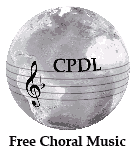Related Research Articles

PhpWiki is a web-based wiki software application. It began as a clone of WikiWikiWeb and was the first wiki written in PHP. PhpWiki has been used to edit and format paper books for publication.

Go is an abstract strategy board game for two players in which the aim is to fence off more territory than the opponent. The game was invented in China more than 2,500 years ago and is believed to be the oldest board game continuously played to the present day. A 2016 survey by the International Go Federation's 75 member nations found that there are over 46 million people worldwide who know how to play Go, and over 20 million current players, the majority of whom live in East Asia.

The Smart Game Format (SGF) is a file format used for storing records of board games. Go is the game that is most commonly represented in this format and is the default. SGF was originally created under a different name by Anders Kierulf for his SmartGO program.
Wikisource is an online wiki-based digital library of free-content textual sources operated by the Wikimedia Foundation. Wikisource is the name of the project as a whole; it is also the name for each instance of that project, one for each language. The project's aim is to host all forms of free text, in many languages, and translations. Originally conceived as an archive to store useful or important historical texts, it has expanded to become a general-content library. The project officially began on November 24, 2003, under the name Project Sourceberg, a play on Project Gutenberg. The name Wikisource was adopted later that year and it received its own domain name.
Office Open XML is a zipped, XML-based file format developed by Microsoft for representing spreadsheets, charts, presentations and word processing documents. Ecma International standardized the initial version as ECMA-376. ISO and IEC standardized later versions as ISO/IEC 29500.

The Choral Public Domain Library (CPDL), also known as the ChoralWiki, is an online database for choral and vocal music. Its contents primarily include sheet music in the public domain or otherwise freely available for printing and performing.
Yasuro Kikuchi was a Japanese amateur Go player.

There are many variations of the simple rules of Go. Some are ancient digressions, while other are modern deviations. They are often side events at tournaments, for example, the U.S. Go Congress holds a "Crazy Go" event every year.

Marvel Trading Card Game is a video game for the Nintendo DS, Windows, and PlayStation Portable. It was developed by Vicious Cycle Software and 1st Playable Productions and published by Konami. The game is based on Upper Deck Entertainment's Marvel Comics-based collectible card game, and was released across all three platforms in several regions in 2007.
A kofight is a tactical and strategic phase that can arise in the game of go.

ContextObjects in Spans (COinS) is a method to embed bibliographic metadata in the HTML code of web pages. This allows bibliographic software to publish machine-readable bibliographic items and client reference management software to retrieve bibliographic metadata. The metadata can also be sent to an OpenURL resolver. This allows, for instance, searching for a copy of a book at a specific library.

GameFAQs is a video gaming website that hosts guides and other resources, as well as an active message board forum. It was created in November 1995 by Jeff Veasey and has been owned by Fandom, Inc. since October 2022. Allen "SBAllen" Tyner was lead Admin for twenty years until stepping down on October 18, 2023. The site is currently run by Community Manager "DToast" and Contributor Lead "ZoopSoul".

The International Music Score Library Project (IMSLP), also known as the Petrucci Music Library after publisher Ottaviano Petrucci, is a subscription-based digital library of public-domain music scores. The project uses MediaWiki software, and as of 24 November 2023 has uploaded more than 736,000 scores and 80,700 recordings by 1,900 performers of more than 226,000 works by 27,400 composers. IMSLP has both an iOS app and an Android app.
The KGS Go Server, known until 2006 as the Kiseido Go Server, is a game server first developed in 1999 and established in 2000 for people to play Go. The system was developed by William M. Shubert and its code is now written entirely in Java. In Spring of 2017, Shubert transferred ownership to the American Go Foundation.

The history of wikis began in 1994, when Ward Cunningham gave the name "WikiWikiWeb" to the knowledge base, which ran on his company's website at c2.com, and the wiki software that powered it. The wiki went public in March 1995, the date used in anniversary celebrations of the wiki's origins. c2.com is thus the first true wiki, or a website with pages and links that can be easily edited via the browser, with a reliable version history for each page. He chose "WikiWikiWeb" as the name based on his memories of the "Wiki Wiki Shuttle" at Honolulu International Airport, and because "wiki" is the Hawaiian word for "quick".

There is an abundance of go software available to support players of the game of Go. This includes software programs that play Go themselves, programs that can be used to view and/or edit game records and diagrams, programs that allow the user to search for patterns in the games of strong players and programs that allow users to play against each other over the Internet.
The European Go Federation (EGF) is a non-profit organization with the purpose of encouraging, regulating, co-ordinating, and disseminating the playing of the board game Go in Europe. The EGF was founded in 1957, the same year that the inaugural European Go Congress (EGC) took place in Cuxhaven, Germany. The Congress has been an annual event every year since then, held each time in a different European city. The European Go Championship takes place during the EGC, as well as the Annual General Meeting (AGM). In 2014, the European Professional System was established by the European Go Federation.
Wikipedia Review was an Internet forum and blog for the discussion of Wikimedia Foundation projects, in particular the content and conflicts of Wikipedia. Wikipedia Review sought to act as a watchdog website, scrutinizing Wikipedia and reporting on its flaws. It provided an independent forum to discuss Wikipedia editors and their influence on Wikipedia content. At its peak, participants included current Wikipedia editors, former Wikipedia editors, users banned from Wikipedia, and people who had never edited. The last post was on 31 May 2012.

Svetlana Valeryevna Shikshina is a professional Go player from Russia, one of only four western women to date to reach professional status. She achieved this in 2002, affiliated to the Hanguk Kiwon.
References
- ↑ Morten Pahle. "SL History" . Retrieved 2008-12-11.
- ↑ "SGF File Format FF(4) Page" . Retrieved 2007-03-28.
- ↑ "Arno Hollosi, "Austria's Citizen Card and Beyond," Int. Conf. on Electronic Identity and Interoperability, 16th April 2004, Rome, Italy" (PDF). Archived from the original (PDF) on 2005-03-11. Retrieved 2008-05-04.
- ↑ "Sensei's Library: Front Page" . Retrieved 2010-06-01.
- 1 2 Waldron, Philip (2005-12-23). "GO REVIEW: Top 10 Go Websites". American Go Association . Archived from the original on 2009-09-25. Retrieved 2008-12-11.
- ↑ Terri Schurter. "American Go Association e-journal October 2001" . Retrieved 2011-05-18.
- ↑ "St Louis Go Association web site". 22 July 2008. Retrieved 2011-05-18.
- ↑ "GoGoD recommended links" . Retrieved 2011-05-18.
- ↑ "MSO article on John Fairbairn". Archived from the original on 2007-04-17. Retrieved 2007-03-28.
- ↑ "Charles Matthews Player Page" . Retrieved 2007-03-28.